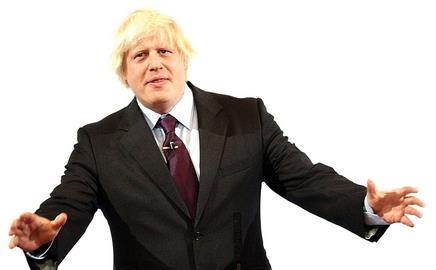What qualities make a leader special. Is it charisma? Is it a corduroy suit and a comedy haircut? Or is it that they continue to employ you after you’ve written a sex farce about them and put it on in your local pub? Toby Young says all these play a part
I can’t claim to be an expert on employers because I’m incapable of holding down a job. Indeed, the first time I set eyes on my new boss is usually when he’s handing me a P45. In the course of my 20-year-career as a journalist, I’ve been fired from The New Statesman, Vanity Fair, The Times, The Independent, the Mail on Sunday and the Evening Standard. Indeed, on one memorable occasion I was hired as a columnist by The Guardian and then fired before I’d submitted my first piece. I usually don’t get fired until after I’ve written my first column.
However, there is one editor who has never fired me: Boris Johnson. He hired me when he became editor of The Spectator in 1999 and, incredibly, I was still clinging on when he left seven years later. What made this particularly miraculous is that in 2005 co-authored a sex farce with the magazine’s drama critic in which Boris was depicted as the father of Kimberly Quinn’s love child. Rather than terminate our employment, he sent us a postcard which read: “I always knew my life would be turned into a farce. I’m just glad it has been entrusted to two such distinguished men of letters.” He was being sarcastic, of course, but it was still very sporting of him. “Who’s The Daddy?” ran for six weeks at The King’s Head and was named Best New Comedy at the 2006 Theatregoers’ Choice Awards.
Boris’ refusal to swing the axe was remarkable because he had a right to feel betrayed on account of the loyalty he’d shown to me on a previous occasion. This was in 2001, when I was in charge of The Spectator’s website. For the purposes of re-launching it, I had managed to secure a story revealing that Prince William had shot an Ibis while on holiday in Kenya. Ibises are not an endangered species, but they are on the list of birds that you’re prohibited from shooting by the Kenyan authorities. So it was a scoop.
On the day the site relaunched, the story was nowhere to be seen. I called the techie guy at the office to find out what had happened and he told me that the magazine’s publisher, Kimberly Quinn, had ordered him not to run the article on the grounds of libel. I called Boris to protest. After all, he was the editor: wasn’t it his decision as to whether it should run?
He immediately summoned Kimberly to his office, gave her a flea in her ear, and ordered the article to be reinstated. That may not sound like much to anyone outside the business, but you’d be amazed at how many editors are willing to defer to their publishers. Kimberly was more powerful than most, too, having seen off Boris’ predecessor, Frank Johnson, and the pragmatic course would have been to rubber-stamp her decision rather than risk making an enemy of her.
Nevertheless, Boris decided to stand by me. For that, he had a right to expect my undying loyalty. At this point, any employers reading this will probably be thinking, “Yes, you went on to betray him in spectacular fashion. He should have identified you as a troublemaker and fired you at the first opportunity.”
There may be some truth in that, but the decency he showed me didn’t go entirely unrewarded. When “Who’s The Daddy?” was at the height of its success, playing to packed houses every night, I was approached by three commercial theatre producers, all of whom wanted to take it to the West End. My co-author and I were in clover: we could play them off against each other, pocket a huge wad of cash and – with a bit of luck – bask in the glow of a West End hit. For a couple of first-time playwrights like us it was a dream come true.
But on the day we had to decide which producer to go with, I got a call from Boris. It was the first time he’d contacted me in person since the play had debuted six weeks earlier. “I’ve got a favour to ask, old bean,” he said. “Could you pull the plug on this jamboree of yours? It’s causing me a spot of bother with She Who Must Be Obeyed.”
I talked it over with my co-author, whom Boris had also treated extremely well. After a good deal of soul-searching, we decided to acquiesce to his wishes. We both felt guilty about having betrayed him in the first place and here was an opportunity to make amends. So what if it meant foregoing the chance to have a play in the West End? We could always write another one. Boris left The Spectator in 2006 to concentrate on his political career and, astonishingly, I’m still employed at the magazine. Indeed, I’ve just been made the Mayoral Campaign Correspondent. I’m not sure what sort of political boss Boris would make, but he was certainly one hell of an employer.
Toby Young is associate editor of The Spectator
The good employer guide 2007
- 1
- 2
- 3
 Currently reading
Currently readingIs this Britain’s best boss?
- 4
- 5
- 6
- 7

































No comments yet